A CIA officer’s 5 favorite spies from TV and movies
- By Frumentarius
Share This Article

There are a lot of fanciful and ridiculous depictions of intelligence officers and operations to be found in the realm of fiction – let us dispense with that caveat from the outset. Be that as it may, there are also some great characters out there in that vast wasteland, standing tall above the detritus and the absurd.
Below are my five favorite fictional (and pseudo-fictional) characters from the big and small screen “spy” genre. Some I love for their realistic portrayals of the job, some because they effectively highlight just one or two of the most significant facets of intelligence officers and operations, and one I love just because she is an absolute bad-ass, commie-slaying, murderous angel of dark vengeance. The latter character gets a pass on her lack of realism.
1) Avner Kaufman (based on Yuval Aviv), Munich
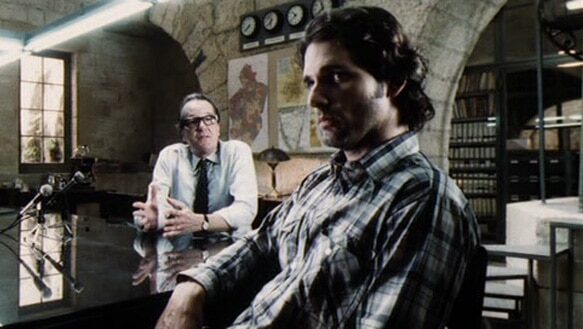
Based on the book Vengeance by George Jonas, the film Munich depicts the Israeli Operation Wrath of God which sought to exact revenge for the murder of Israeli athletes by the Palestinian terrorist group Black September at the 1972 Summer Olympics. Avner Kaufman (Eric Bana) is the operational commander of the group of operatives tasked with carrying out the assassinations of all those involved in the attack.
While the movie – like so many books and movies about intelligence operations – condenses the role of many into but a few characters, those few characters are so compelling as to make you forget they are entirely fictional. We watch spellbound, understanding, repelled, and saddened as they evolve throughout the movie from hell-bent on vengeance to ambivalent about continuing the operation, too wary of the whole endeavor by the film’s end.
Based on the book Vengeance by George Jonas, the film Munich depicts the Israeli Operation Wrath of God which sought to exact revenge for the murder of Israeli athletes by the Palestinian terrorist group Black September at the 1972 Summer Olympics. Avner Kaufman (Eric Bana) is the operational commander of the group of operatives tasked with carrying out the assassinations of all those involved in the attack.
While the movie – like so many books and movies about intelligence operations – condenses the role of many into but a few characters, those few characters are so compelling as to make you forget they are entirely fictional. We watch spellbound, understanding, repelled, and saddened as they evolve throughout the movie from hell-bent on vengeance to ambivalent about continuing the operation, too wary of the whole endeavor by the film’s end.
Bana best illustrates this righteous anger, thirst for vengeance, growing ambivalence, and subsequent paranoia, in the role of Kaufman. We empathize as he and the group coldly kill one terrorist after another, even as they make tragic mistakes, and succumb to being targeted themselves as their mission stretches on. Kaufman must navigate a shadowy private intelligence gathering family, the Israeli authorities prodding him on, his fellow team members, and his own conscience as the movie goes on. The journey is ruthless, heartbreaking, tense, morally ambivalent, and gripping.
Related: How did Israel pack Hezbollah’s pagers with explosives?
2) Captain Gabi Ayub, Fauda
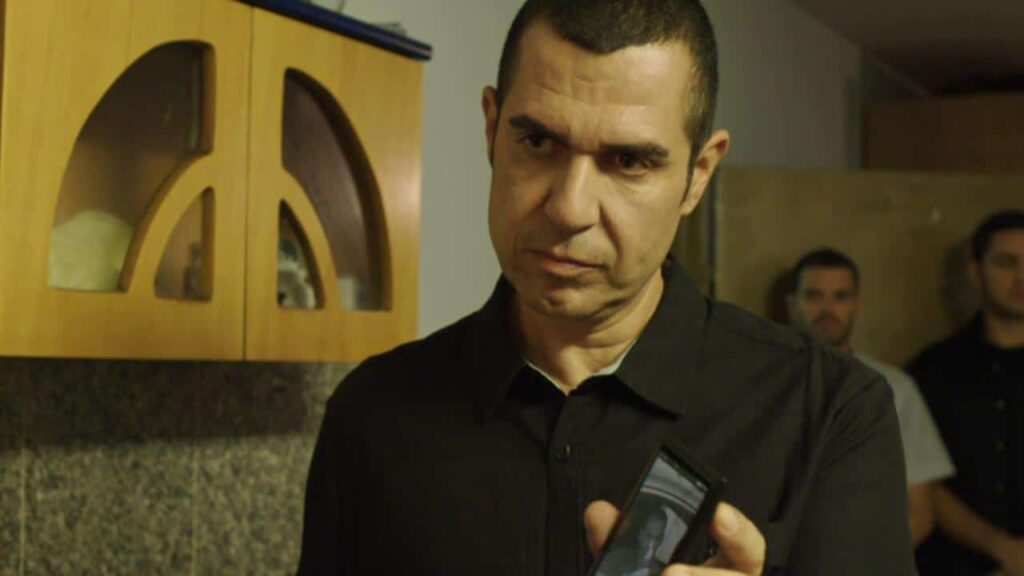
Featured in the Israeli terrorism/spy drama Fauda, and played by Israeli actor Itzik Cohen, Gabi Ayub is an interrogator for the Israeli internal intelligence service, Shin Bet, and the intelligence liaison officer to Palestinian Authority officials in the West Bank. All at once, ruthless, obsequious, accommodating, and threatening, Ayub is the perfect depiction of an intelligence officer who has to play wildly different roles in his job, depending on with whom he is dealing in any given moment.
One minute, Ayub is a honey-voiced case officer, sweet talking a potential Hamas source with promises and platitudes, offering tea, cigarettes, and money. The next moment, he is beating a Hamas member about the head for having the temerity to call him by his first name and mention his family while under interrogation. We then see him in liaison mode, with the Palestinian Authority intelligence officials in the West Bank, warmly praising their cooperation and asking for even more of it, all while sharing a camaraderie both genuine (based on a shared desire to stop radical Islamic groups from overrunning the territories) and false (given the Israeli military and political dominance of the West Bank).
Ayub’s best moments are when he talks about his absent family, multiple marriages, and solitary lifestyle, all of which can be attributed to his obsession with his work, which he accepts as part of the price for the vocation he has chosen. In short, Ayub is the intelligence officer in full, struggling with the work, obsessed by it, playing all the parts, and trying to be a man of his family while still devoted to giving his all to what he thinks is best for his country and people.
3) Control, The Spy Who Came in from the Cold
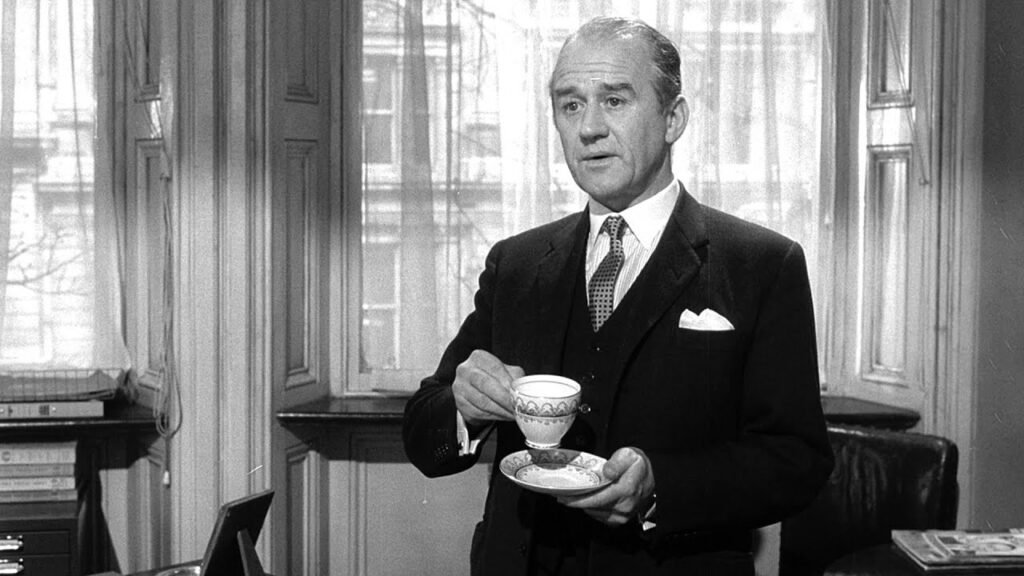
Based on the 1963 John Le Carre novel of the same name, The Spy Who Came in from the Cold is a bleak and layered espionage drama, revealing a world more Nietzschian than black and white, filled with quotidian men and women (“a bunch of seedy, squalid bastards” in the words of the film’s protagonist Alec Leamas) doing what needs to be done for the good of their respective sides. Often, the morality of it all is cast aside and sacrificed to the patriotic good.
Playing puppet master at the center of this drama is head of British intelligence (MI6), Control, as played by Irishman Cyril Cusack. Le Carre himself praised Cusack’s performance as “venomous” in an interview about the film. Control is not bothered by the moral ambiguity, though he is able to recognize it from a cold remove. “Occasionally, we have to do wicked things, very wicked things indeed,” he says when tasking MI6 officer Leamas to stay out in the cold to frame German intelligence officer Mundt as a British agent.
Even as he does so, Control realizes the toll this work can take on those in the intelligence game: “We have to live without sympathy, don’t, we? We can’t do that forever. One can’t stay out of doors all the time. One needs to come… in from the cold.
Control sums up perfectly one of the many paradoxes of intelligence work: Namely its tendency to force its practitioners to occasionally act immorally for the good of their country: “Our policies are peaceful, but our methods can’t afford to be less ruthless than those of the opposition, can they?” It is a realism rarely seen in fiction about intelligence operations, personified perfectly by Le Carre’s ruthless head of MI6.
Related: Mitch WerBell III: The Cold War’s most mysterious man
4) Lorraine Broughton, Atomic Blonde

Charlize Theron is absolutely maniacal as British MI6 (or American CIA?) officer Lorraine Broughton in this completely fictional and deliciously unrealistic depiction of a Western intelligence officer in Berlin during the Cold War-tainted late 80s.
Is Broughton a double agent? Is she a triple agent? Do we even care? No, we don’t. While the plot might be absurdist and convoluted at times, the action is absolutely delightful, with a bloody and battered Broughton laying waste to all manner of Communist (and some Western) baddies, all set to a fantastic soundtrack of 80s club music.
This is the kind of ridiculous spy thriller I can wholeheartedly get behind. Theron is top notch in her ice-cold depiction of Broughton.
5) Gust Avrakatos, Charlie Wilson’s War
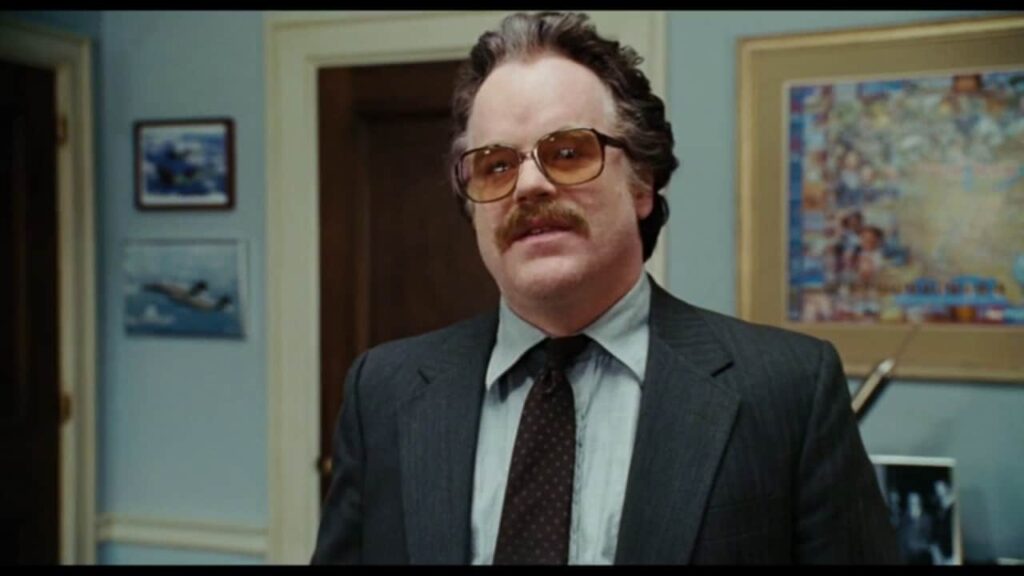
Phillip Seymour Hoffman plays the real-life CIA officer Avrakatos in this political-espionage movie loosely based on the book of the same name. It is by far the best depiction of a CIA case officer ever committed to film.
Hoffman captures the jaded nonchalance, the world-weary realism, the dark humor, the ever-present chip on the shoulder, and the ubiquitous sense of “why won’t they listen to me, the guy they sent there to act as the eyes and ears of the country?” shared (probably) by every case officer to have ever served. Hoffman slouches his way around the movie, in a shambolic suit and tie, bushy mustache, and a second-generation Greek-American rejection of authority. He’s pissed he was skipped over for the Helsinki chief of station job, even though he spent THREE YEARS learning Finish and is never, ever sick at sea!
Hoffman’s speech in his boss’ office (“I’d like to take a moment to review the several ways in which you’re a douchebag”) is simply masterful. Gust is left to take his frustrations out on the Russians in Afghanistan, much to the benefit of America and the detriment of the Russians. Honestly, the book and movie should’ve been called Gust Avrakatos’ War, but hey, whatever, it is still a fantastic portrayal of a loyal American intelligence officer taking it to the enemies of the country.
Feature Image: Charlize Theron as Lorraine Broughton in Atomic Blonde. (Focus Features)
Editor’s Note: This article was originally published in May 2021. It has been edited for republication.
Read more from Sandboxx News
- China could stop US airpower from achieving air superiority in the first island chain, top commander says
- Why the F-15 couldn’t become a stealth aircraft – and why it doesn’t matter
- The unique world and uses of howitzers
- Do sailors have a future in the US Navy? No, according to former Army general
- Did we just get our first glimpse of America’s new stealth fighter?
Related Posts
Sandboxx News Merch
-

‘Sandboxx News’ Dad Hat
$27.00 Select options This product has multiple variants. The options may be chosen on the product page -

‘AirPower’ Golf Rope Hat
$31.00 Select options This product has multiple variants. The options may be chosen on the product page -

A-10 ‘Thunderbolt Power’ Poster
$22.00 – $28.00Price range: $22.00 through $28.00 Select options This product has multiple variants. The options may be chosen on the product page
Frumentarius
Frumentarius is a former Navy SEAL, former CIA officer, and currently a battalion chief in a career fire department in the Midwest.
Related to: Pop Culture
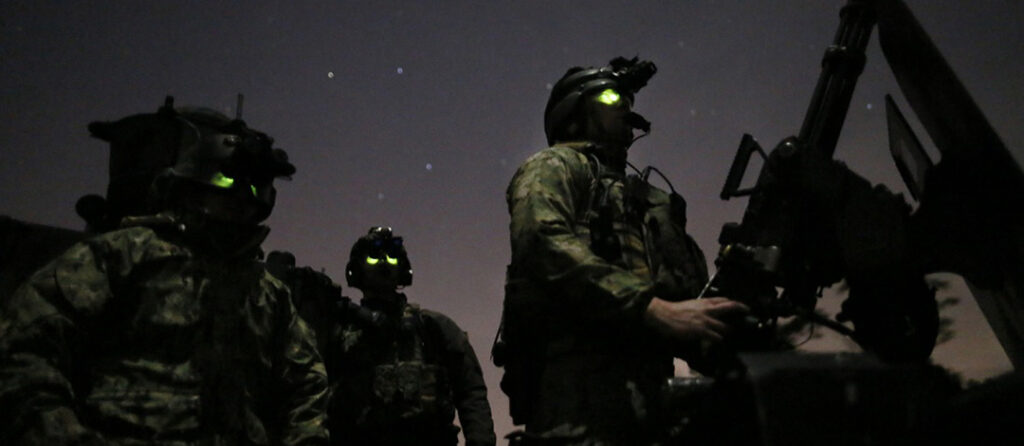
SWCC are the Naval Special Warfare’s elite boat operators
Sandboxx News
-

‘Sandboxx News’ Trucker Cap
$27.00 Select options This product has multiple variants. The options may be chosen on the product page -

‘AirPower’ Classic Hoodie
$46.00 – $48.00Price range: $46.00 through $48.00 Select options This product has multiple variants. The options may be chosen on the product page -

‘AirPower’ Golf Rope Hat
$31.00 Select options This product has multiple variants. The options may be chosen on the product page -

‘Sandboxx News’ Dad Hat
$27.00 Select options This product has multiple variants. The options may be chosen on the product page
